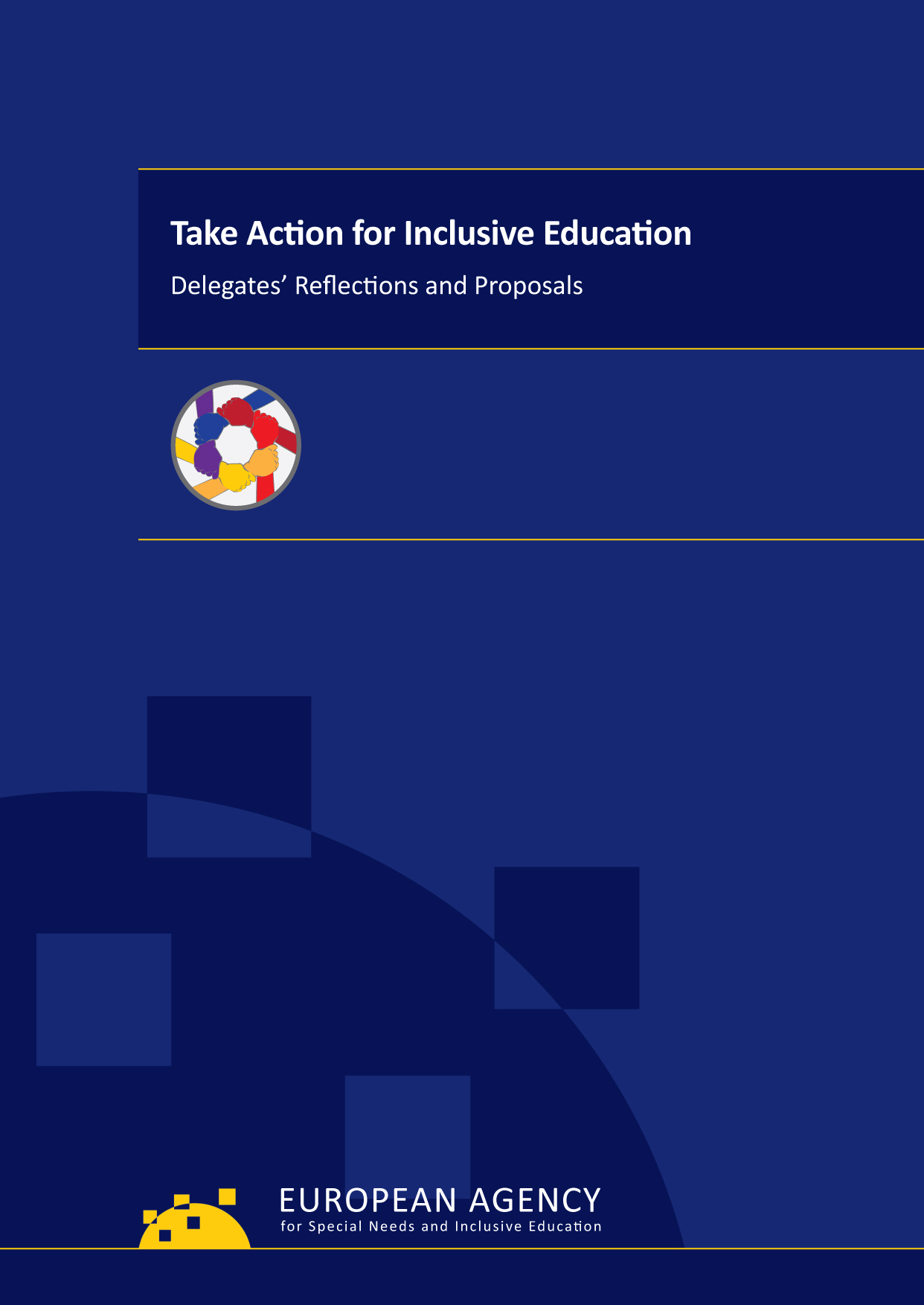On 9 April 2015, in the Polish Ministry of National Education a delegation of twelve secondary school students competed to participate in the Agency’s fourth European Hearing in Luxembourg. The contest was established by the Educational Opportunities Department and consisted of a regional and a national stage.
For the regional stage the Education Office had to choose one inclusive public secondary school from each of the 16 provinces. The main conditions for participation in the competition were whether inclusion was practiced by the whole school community (students, parents, teachers, etc.) and if good co-operation was in place with other educational institutions. The participants had to prepare a short multimedia presentation answering questions such as:
- What does inclusive education mean to you?
- How is inclusive education implemented in your school? How should it be done?
- What are the main benefits of inclusive education? What challenges do we have to face?
- What can we do to provide inclusive education for more students?
- How is your school going to disseminate recommendations from the Hearing in Luxemburg?
Twelve of the sixteen provinces participated in the national phase. The most inclusive secondary schools in the region were selected, each school delegating two students with and without special needs and/or disabilities.
On 8 April a group of 24 students entered the second, national level of the competition. Firstly they took part in a workshop organized by the Centre for Education Development in Sulejówek near Warsaw. They had the opportunity to share their experiences and views about inclusive education in preparation for the ‘Inclusive Education: Take Action! Luxembourg Recommendations’ Hearing.
The students created a model of an inclusive school and discussed what inclusion means for them. They worked up an information sheet to promote an inclusive school and discussed what should be changed in their own school and how they can influence this process. Finally, they shared their ideas on how to propagate inclusion and how to implement these ideas in other schools in their neighbourhood and region.
The following day the Polish Ministry hosted the delegates and their teachers who presented their ideas regarding inclusion in their schools. They spoke about how to bring these ideas to life and demonstrated the value this could bring to others.
The participants were welcomed by Mr Tadeusz Sławecki, Secretary of State for the Ministry of National Education, and Mr Marek Michalak, the Ombudsman for Children’s Rights.
The presentations were assessed by a committee composed of Ms Katarzyna Hall – MP (previously Minister of Education), Senator Mrs Jan Filip Libicki, Ms Dorota Zawadzka – Civil Advisor of the Ombudsman for Children in Poland, Ms Sylwia Gorska from the Ombudsman’s office for civil rights, Ms Dorota Zyro – Deputy Director of the Centre of Education Development and Ms Joanna Wrona – Director of the Department of Improving Educational Opportunities.
On behalf of the Jury, Minister Katarzyna Hall expressed her appreciation to all the students, thanking the delegates for the effort they put into their presentations. She emphasized that all schools deserve a special award for their contribution to the process of inclusion and that this applies to the whole school community. In the end, the jury selected two students from a secondary school in Pakość to represent Poland in the Agency’s fourth European Hearing under the Luxemburg Presidency of the Council of the European Union.
The Hearing in Luxemburg will bring together delegates from Agency member countries to share ideas and opinions from their own experiences. Now we can only wait for the recommendations from Luxemburg which will guide policy makers and authorities in future reforms, aiming for the improvement of educational opportunities for all students in compulsory education.
We can also trust that the Polish students who took part in the workshop in Sulejówek – and in the competition at regional and national level – will be ambassadors of inclusive education in Poland and that they will take positive action to improve the mainstream educational system for all.
For more information on this competition, contact the Agency's representatives in Poland.
